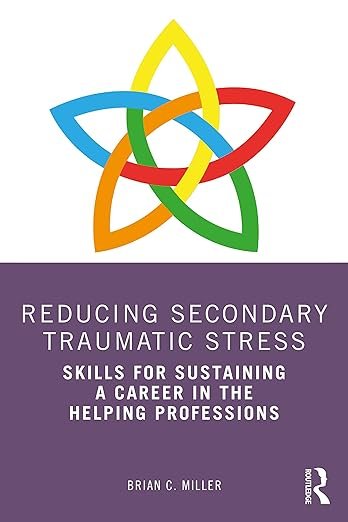CE-CERT
A Skills-Based, Evidence-Informed Approach to Thriving in the Helping Professions:
Brian C. Miller, Ph.D.
Dr. Miller has experience in various behavioral health, direct practice, clinical leadership, and policy roles. He holds a PhD from Case Western Reserve in Cleveland, Ohio.
Psychotherapists
Child welfare workers
Social Workers and Counselors
Physicians
Nurses
Educators
Ultimately, the goal of CE-CERT is not merely to survive this work:
Rather, the goal is to have a vocation that is uniquely and deeply satisfying.
CE-CERT MODEL
Skills for Sustaining a Career in the Helping Professions
Compassion Fatigue
Burnout
Vicarious Trauma
Secondary Trauma
These concepts have one thing in common: they describe the emotional toll experienced by workers in the helping professions who deal intensively and empathically with persons engaged in an emotional personal struggle.
CE-CERT (Components for Enhancing Career Experience and Reducing Trauma) was developed as a model to support the well-being of behavioral health clinicians exposed to the effects of secondary trauma. However, this model has demonstrated its usefulness well beyond clinicians, and beyond trauma work. CE-CERT has been enthusiastically embraced in child welfare, healthcare, and education settings as well as behavioral health.
CE-CERT is best viewed as a suite of evidence-informed strategies for staying well and flourishing in a career in the helping professions.
What is New Here?
1) CE-CERT is evidence-informed. CE-CERT draws from extensive research literature, including evidence-based trauma treatment, neuroscience, sociology, narratology, occupational psychology, and clinical treatment effectiveness research.
2) CE-CERT is a set of practices that can be applied to reduce the effects of job stress and to enhance the experience of doing helping work. Not just ideas—concrete practices and skills.
3) CE-CERT focuses on enhancing the experience of doing the job while we are doing it. It is not a recover-after-work approach but deals with the real-time experience of doing helping work.
4) CE-CERT has a manualized, defined process for implementing the practices in an organization.
Read More About the CE-CERT Model
This book provides helping professionals with a portfolio of skills that support emotion regulation and recovery from secondary trauma exposure.
“I wish I had read this book at the beginning of my career.”
Each chapter presents evidence-informed skills that allow readers to regulate distressing emotions and to foster increased empathy for those suffering from trauma.
“This book was recommended to me by my therapist as I am a upcoming therapist in training. He told me that it completely reframed how he works with clients and wishes it was part of grad school curriculum. Boy was he right! I have gleaned so many important insights from reading this book.”
Reducing Secondary Traumatic Stress goes beyond the usual discussion of burnout to talk in specific terms about what we do about the very real stress that is produced by this work.
Recent Presentations and Implementation Projects
Book Reviews
Ginny Sprang
PhD, professor of psychiatry, University of Kentucky, and executive director, Center on Trauma and Children
“Just what the trauma field needed at just the right time. This book is 100% Brian Miller, clever, wise, articulate, full of sage and nuanced advice for addressing secondary traumatic stress symptoms in real time. If I were curating a greatest hits list in professional literature, this would be top of the charts!
Francoise Mathieu
M.Ed RP Kingston, Ontario, Co-founder of Tend, Author of The Compassion Fatigue Workbook
“If you are currently on the fence about your calling, this book may even bring you back to loving the work that you do.”
Brian E. Bride
PhD, MSW, MPH, former editor in chief of Traumatology, and Distinguished University Professor and director of the School of Social Work at Georgia State University
“In Reducing Secondary Traumatic Stress, Miller has synthesized and distilled research from a wide range of fields to provide a roadmap for trauma-affected professionals to not just sustain their careers, but to thrive in them!”

















